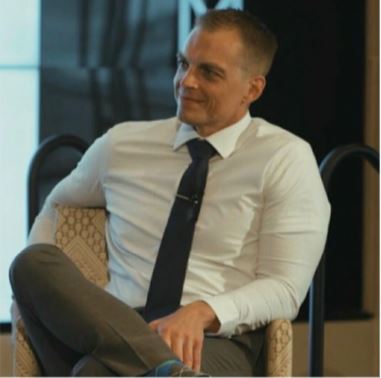Have you ever wondered what life would be like if God’s people observed the two greatest commandments? When Jesus is asked which is the greatest commandment of the law, he answers:
You shall love the Lord your God with all your heart and with all your soul and with all your mind. This is the great and first commandment. And a second is like it: You shall love your neighbor as yourself. On these two commandments depend all the Law and the Prophets.”
While we certainly don’t want to drain God’s word of its complexity or mystery, we should also take care to accept its uncomplicated message: We are to be loyal to God by giving him all that we are and have. In doing so, we will be able to love others.
When we decouple these commands, we end up with an incomplete expression of faith. If we say we love God but do not love our neighbor, we do not practice “pure and undefiled religion before God the Father” because we do not care for others, particularly others who are vulnerable (James 1:27). If we love our neighbor while relegating God to the margins of our lives or denying him completely, we “worship and serve the creature rather than the Creator” (Romans 1:25). Love for God yields love for others. Love for others springs from love for God. It isn’t complicated, nor is it easy.
As Moody Center moves forward, we will be focusing on proclaiming the uncomplicated gospel to a world that needs to hear it. Just what does that mean? First, it means that we will share the gospel through all of our on-campus activities. Our prayer walk is a great example. As people come to walk the property and use the prayer guide, they are also presented with the gospel.
Second, it means that we will work to help God’s people proclaim the gospel. We just finished the “Go Dark, Shine Bright” campaign that was designed to give people a ten-day break from social media for prayer and study, after which they would go back onto social media and share the gospel with their social network. We will be doing more campaigns designed to encourage the church to share the uncomplicated message of the gospel.
We believe that the people of God exist to be and make disciples. To be disciples means that we are buried with Christ through baptism and raised with Him to walk in a newness of life by observing all his teachings (Matthew 28:18-20; Romans 6:4). Moody Center’s desire is twofold. First, we desire to provide a place for believers to rest and retreat in Northfield because it is important to create spaces where God’s people can commune with Him and one another as they seek to discern the Holy Spirit. Second, we desire to offer opportunities for God’s people to more deeply commit to following Jesus Christ. We pray that you share this desire and will continue to participate with us as we seek to proclaim the uncomplicated gospel to a world that needs to hear it.
This is an updated edition of a post originally published on CRAZY DIFFERENT
Featured Image by Екатерина Гусева from Pixabay



















